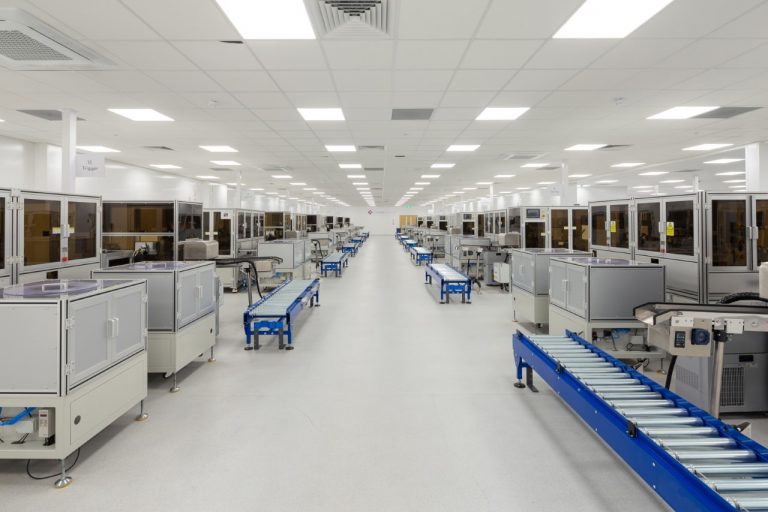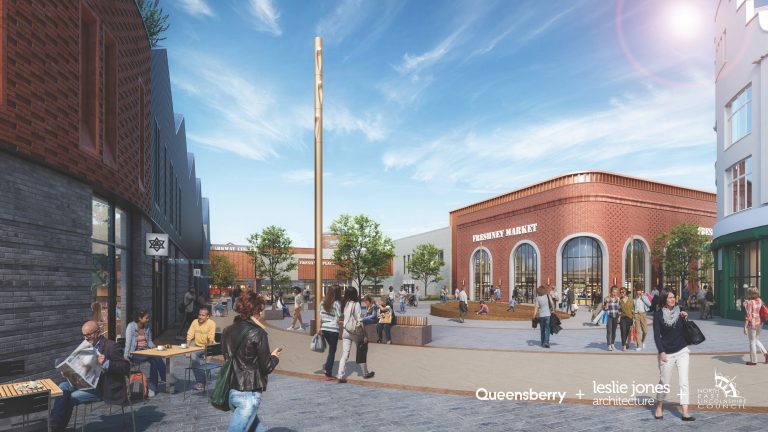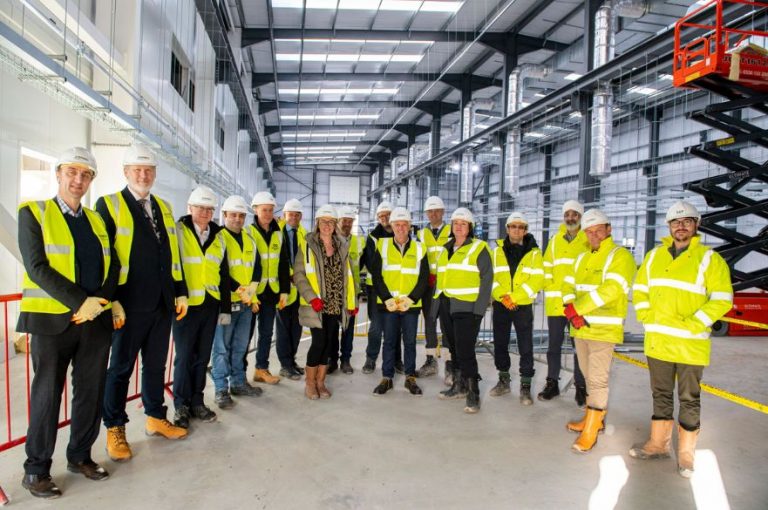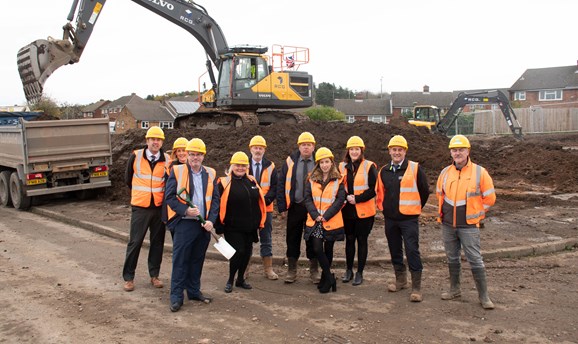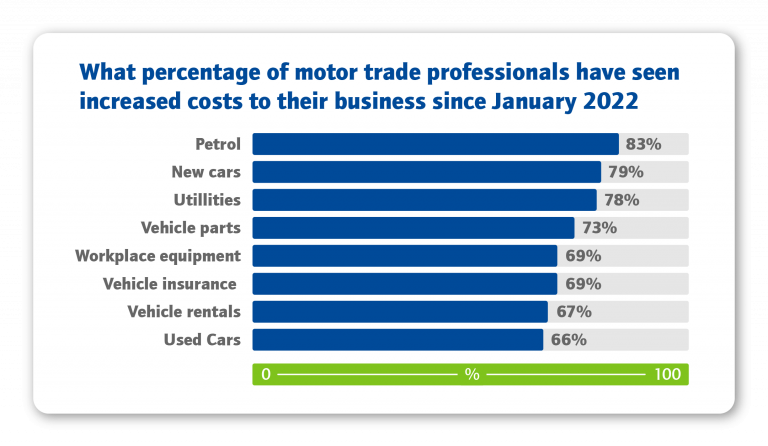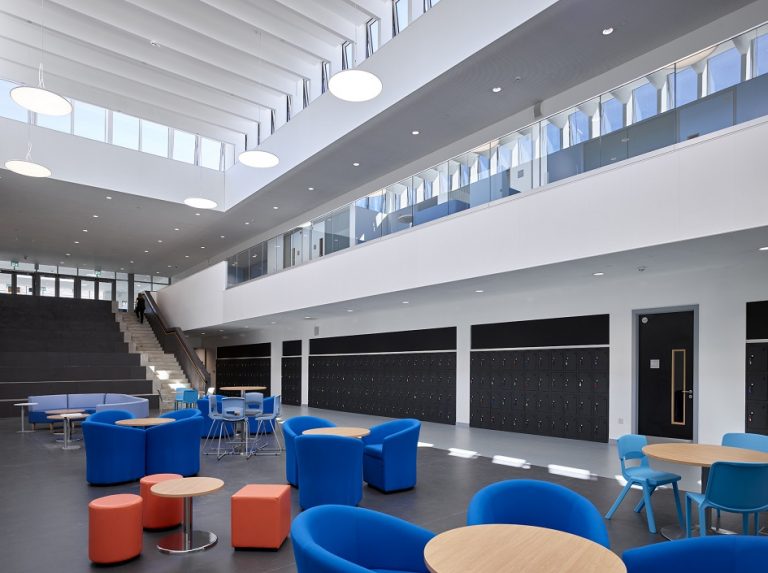DSP (Interiors) Ltd complete fit-out for Surescreen Diagnostics’ new production facility
Food retail space and restaurant pods planned for Riverside Retail Park
New promotions at Paragon Law
TikTok against the clock for Hagley West
The office vs. the commute: what influences where people work?
The Lack of Commute
According to the survey mentioned, 79% of respondents say not having to commute has had an impact on their preference to work from home. Additionally, there is a relationship between how long a commute was in the past and how much a person enjoys working from home. People with longer commutes had a higher preference for working from home. Just over half of those surveyed and who had a 15–30-minute commute had a strong positive preference for working from home, while the proportion jumped to about nine in ten for those who lived more than two hours from their workstations. On the opposite end of the spectrum, a higher percentage of those with short commutes said they had a negative experience from home compared to those with longer commutes — 15.4% compared to 0.6%. With all this in mind, we see a direct relationship with negative and positive feelings about working from home based on how long a commute is.How the Office Factors In
Understanding that a commute has an impact on work-from-home preferences, we need to examine whether the office has an impact too. People with shorter commutes are preferred and even necessary for their business to have an office. This is because they are more likely to need to come to the office. We see interesting results from those with longer commutes. This group prefers to use the office a lot less, obviously, but a significant majority say they don’t see the need for their business to have an office. The reasoning is that, if everyone works from home, the business can operate remotely, with virtual meetings and everything else assisted by technology.Personal Office Preferences
Those who prefer to work from home, including those with long commutes, also say the ability to create an office space that serves them best is a significant reason for them to continue working from home. Instead of commuting a few hours to work, sitting in a cubicle for about eight hours and then commuting back, they see gains in time, money, flexibility and productivity as reason enough to establish offices at home. Creating a personalized office space that allows for full immersion into work serves them best. This can include getting the desks and chairs they have always wanted, decorating their offices however they like and having the ability to control things like the amount of light and temperature. Additional options like all pitched roof windows are also preferred as they allow light and air to enter the office and create a conducive working environment. Those converting a space to an office and who want more light and air can visit Roof Window Outlet’s website to see what all pitched roof windows are available.Reclaiming Lost Time
The sentiment of reclaiming lost time is strongest in those who have the longest commutes. Many people started working from home due to the risks associated with commuting and being in the office and, with these risks gone, they still see the benefits of working from home. Not having to commute every day means people have more time to spend doing something they love outside work, to spend time with their families or to do something that benefits their lives differently. These people are not looking to flood back to the office and have this time and flexibility taken away from them. With office occupancy rates remaining below 50% for most of the week, we see people are not returning to the office if they can help it even in cases where executives are asking them to.Financial Savings
It is also worth noting that many people are working from home to save money. 55% of respondents in the Hubble HQ survey above said they work from home for this reason. Total Jobs found that the average Londoner could save up to £14,000 in commuting costs over their careers if they worked from home. Other savings could stem from not having to purchase expensive meals or paying a nanny to take care of the kids in the evenings as they would do while commuting. While commuting time has a significant effect on where people work, the office environment also plays a role too. Saving time and money and having freedom and flexibility all factor into these decisions, whether people want to work from home because they do not want to commute or because they love their home offices more.Synectics sells non-core business
Freshney Place development planning application submitted
Fall in GDP sets country on course for quickest return to recession in almost half a century
Award win puts Leicester logistics firm in pole position
Lead the way by communicating better: By Fiona Duncan-Steer, founder of RSViP Business Networking Agency
Construction milestone at new Derby centre for low-carbon research
Work starts on Ashfield District Council’s largest housing development to date
Global staffing solutions company to bring more jobs to Leicester
New associate director at Armsons Barlow
Study shows 70% of East Midlands motor trade businesses expect to make employee redundancies by the end of 2022
East Midlands manufacturer delivers £1.6m furniture contract in Scotland
Innovative Lincolnshire climate business vying for top national award
Midlands sees fall in permanent placements for first time since February 2021
The latest KPMG and REC, UK Report on Jobs: Midlands survey saw permanent placements decline for the first time since February 2021 and a second consecutive reduction in temporary billings during October. Pay inflation, meanwhile, remained elevated amid reports of both high demand for labour alongside shortages in candidate availability.
The KPMG and REC, UK Report on Jobs: Midlands is compiled by S&P Global from responses to questionnaires sent to around 100 recruitment and employment consultancies in the Midlands.
Renewed decline in permanent placements
The number of permanent placements across the Midlands fell for the first time since February 2021 in October. Moreover, the rate of decline was marked. Recruitment consultancies indicated that the renewed decline in permanent placements stemmed from the weak levels of demand that firms across the UK are currently facing.
The decrease in permanent placements in the Midlands was the second sharpest of the four monitored English regions, behind only London which registered the fastest decline since July 2020. All of the monitored English regions recorded lower levels of permanent placements and three of the four downturns followed increases in the previous month.
Temp billings fall at the fastest rate since June 2020
Temporary billings fell for a second consecutive month at the start of the final quarter. Moreover, the rate of decline accelerated from September and was the quickest since June 2020. Anecdotal evidence suggested that the downturn was linked to the worsening economic landscape in the UK. Other firms mentioned that a shortage of candidates also contributed to the decline.
The fall in temp billings in the Midlands was the fastest of the four monitored regions. Conversely, the South of England registered a marked upturn which underpinned the uptick at the UK level.
Demand for staff across the Midlands continued to increase in October, although rates of expansion remained below the respective historical averages. Permanent vacancies rose at a robust rate but at one which was comfortably below the survey peak recorded in July 2021.
Meanwhile, October data completed two consecutive years whereby demand for temporary staff has increased on a monthly basis. The rate of growth, however, was the slowest since January 2021.
Downturn in permanent staff availability sharpens
Recruiters across the Midlands registered a drop in the supply of permanent staff in October which was the nineteenth in as many months. The reduction was sharp and quicker than in September but remained much softer than seen across much of the past year-and-a-half. Candidates were reportedly reluctant to move positions amid widespread economic and market uncertainty. The Midlands posted the softest fall in permanent candidate numbers of the four monitored English regions whilst the North of England reported the sharpest decline.
Temporary staff availability falls at a softer rate
The availability of candidates for temporary roles in the Midlands fell in October, thereby stretching the current negative sequence to 20 months. Anecdotal evidence suggested that people were currently seeking extra stability and had a preference for permanent positions. Other recruitment consultancies also mentioned that high levels of employment across the UK meant that there was a general lack of candidates. That said, the rate of decline in temporary staff availability was the softest since March 2021. Bucking the wider trend, London registered the first uptick in temp staff availability in a year-and-a-half.
Permanent salary growth eases to 18-month low
October data signalled that salaries for permanent new joiners in the Midlands increased for the twentieth month in a row. Though remaining elevated, the rate of increase was much slower than in September and the softest in a year-and-a-half. The rise in permanent salaries was reportedly reflective of a talent shortage, with firms subsequently forced to increase salaries to entice candidates. On a national level, the increase in permanent starting salaries was led by London, though all four monitored English regions registered marked inflation.
Rate of temp wage inflation the softest since May 2021
Hourly pay rates for temporary staff increased further in October, stretching the current sequence of inflation to just short of two years. Anecdotal evidence suggested that a combination of high demand for staff and a shortage in available labour drove the increase in temp wages. That said, the rate of inflation was the softest since May 2021. The rise in the Midlands was also the weakest of the four monitored English regions. London recorded the steepest increase in temporary pay, followed by the South of England.
Commenting on the latest survey results, Kate Holt, people consulting partner at KPMG UK, said: “The looming recession is clearly impacting the UK jobs market. Candidates’ reluctance to move as a result of the challenging economic landscape has resulted in higher demand for staff across the Midlands but fewer actual placements. Employers are also improving their benefit and development offerings, which has also made a significant impact in the number of available candidates. “The talent war is ongoing in the Midlands and now more than ever, it’s essential that we focus on upskilling the workforce to support and boost economic recovery when it comes. The jobs market will bounce back, particularly if we invest in the skills of the workforce across all sectors of the economy.” Neil Carberry, Chief Executive of the REC, said: “The economic and political uncertainty of September and October has caused employers to become more cautious in their approach to hiring than during the frenzy of earlier in the year. “We’ve witnessed permanent placements decline in the Midlands for the first time since February 2021 and a second consecutive reduction in temporary billings in October. Activity overall, is still well in advance of pre-pandemic levels, however. We will need to watch how this story develops over months to come, but so far this data suggests heightened employer caution, not a retreat from the market. “It remains the case that firms in many sectors are struggling to hire, as hours worked remain below their pre-pandemic level despite record-low unemployment. We’re looking to the Autumn Statement later this month to help with removing the brakes on growth by reforming the apprenticeship levy to build a more effective skills system, improving support to help people move from inactivity to work, and align other policy areas – like work permits – with a growth strategy.”

